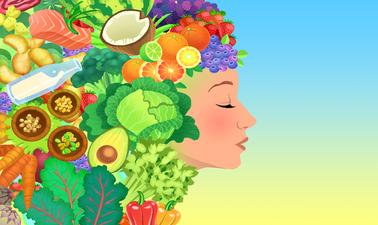MOOC List is learner-supported. When you buy through links on our site, we may earn an affiliate commission.

MOOC List is learner-supported. When you buy through links on our site, we may earn an affiliate commission.
Context
Currently, the gut-brain axis has started to gain media visibility and it has come to the forefront of the medical research community. The growing amount of evidence that substantiates the importance of this link indicates it is a valuable area for the improvement of human well-being and more understanding and research is needed.
The brain is the control centre of the body, and it is heavily influenced by the food we eat. The quality and quantity of our diet can affect our cognitive abilities, mood, and overall brain function. Our brain can also impact our eating habits, by controlling our appetite, cravings, and decision-making processes.
A diet that is high in processed foods, saturated fats, and added sugars can have negative effects on brain function and can lead to inflammation, stress, and insulin resistance, all of which can impair cognitive abilities, memory, and learning.
Solution
To overcome the lack of knowledge in the complex relation between food, gut and brain, and how it can affect life in many senses, EIT Food has developed this short online course to enable not only healthcare professionals, but anyone that is interested in the subject, to understand and discuss how the food we eat can optimise brain function and overall health.
This course title is “Food for Thought: Relationship Between Food, Gut and Brain”. It is composed of 20 hours of learning broken down in 5 modules.
On this course, you will look at the relation between the brain and the digestive system and will be able to describe the role that a diet has on brain function. You will reflect on the possible causes of unhealthy and pathological eating behaviours and assess the relationship between emotions and food intake. You will also discuss the relationship between the food they eat, the digestive system, the brain and how this affects their daily life.
Ambition
Our mission is to provide awareness about the interplay between brain, food and gut and empower individuals with the knowledge and tools to improve their overall well-being by understanding this correlation. Through EIT Food online course, we aim to provide a comprehensive understanding of the latest research and insights into the food-gut-brain connection not only for health care professionals, but for any individual that could be interested in how they influence physical and mental health.
High level contributors
This course has been designed for anyone with an interest in the subject but may be of particular interest to psychologists or people working in health and well-being, and has been produced by the University of Turin, with content provided by the University of Hohenheim and the Polish Institute of Animal Reproduction and Food Research.
What you'll learn
You’ll learn how the brain works, and is affected by diet and nutritional deficiencies. You’ll also discover less known, cutting-edge subjects such as the gut-brain axis, the microbiome, and the relationship between food and reproductive health.
By the end of the course, you'll be able to:
- Describe the role our diet has on brain function
- Identify the role of psychological and neurobiological factors in our food choices
- Evaluate the possible causes (biological, social, psychological) of unhealthy and pathological eating behaviours
- Explain the connection between the brain and our digestive system (gut)
- Assess the relationship between emotions and food intake
- Discuss the relationship between the food we eat, the digestive system, and the brain and how this affects daily life
Syllabus
The course focuses on the relationship between food, brain and mind:
- How does the brain work?
- How do emotions and thoughts affect our food choices?
- How do diets and nutritional deficiencies affect our brain?
- Reward systems and their relationship with food
- The link between the microbiome and brain
MOOC List is learner-supported. When you buy through links on our site, we may earn an affiliate commission.
MOOC List is learner-supported. When you buy through links on our site, we may earn an affiliate commission.
